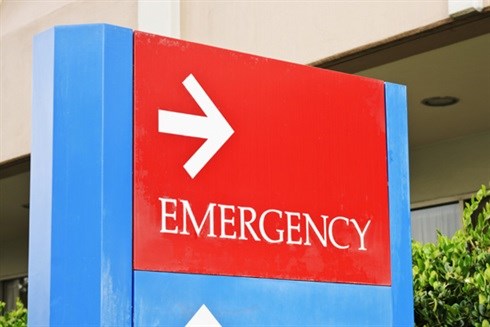World Innovation Summit for Health (WISH) published a report last week on the need for advancing patient safety to put an end to avoidable deaths that are ranked as the third biggest killer in the US, costing $1 trillion a year.

© guynamedjames - Fotolia.com
Errors in patient safety rank third only to heart disease and cancer claiming 400,000 lives each year - the equivalent to two jumbo jets every day. Patient Safety is clearly a serious global public health issue and yet is often over-looked in national policy and global agendas.
A report published today by the World Innovation Summit for Health (WISH), a global initiative of Qatar Foundation for Education, Science and Community Development, aims to change this by identifying reasons for the on-going heartbreak of preventable harm in healthcare and offering solutions to bridge the gaps prevalent in today's approach to patient safety.
Failure to address the growing concern of patient safety contributes to waste in the healthcare system and skyrocketing costs, world leading experts said today. Estimated at that as much as one-third of all US healthcare spending was consumed by waste in 2011, its global experts identified key issues such as a lack of regulation, understanding and integration as well as offering a range of innovative solutions that will provide recommendations to global policy makers.
Patient safety needs improving
Patient safety has historically been recognised as a significant area for improvement in healthcare systems around the world but despite decades of evolving practice and trillions of dollars in investment there are still too many incidents of harm and even deaths. Intensive care units, operating rooms, emergency rooms and clinics are packed with an ever-increasing number of devices that do not talk to each other.
Patient safety could benefit from a more holistic approach both in developed and less-developed regions; initiatives in the UK have reduced Methicillin-resistant Staphylococcus aureus (MRSA) infection by 90% whilst the current Ebola outbreak required the new thinking around challenge of waste disposal and protection of workers in under-resourced regions.
In an effort to improve patient safety through a holistic, sector-wide perspective, Dr Peter Pronovost, Senior VP for Patient Safety and Quality and Director of the Armstrong Institute for Patient Safety and Quality at John Hopkins Medicine in the US, oversaw a team of distinguished international experts, drawn from every field of patient safety to inform and produce the report.
Dr Pronovost said, "For too long in healthcare, the mind-set has been that patient harms are inevitable, that silos are natural and that heroism rather than thoughtful design keeps patients safe. Through the work undertaken behind today's report it is clear that what is missing is a systematic, sector-wide approach, underpinned by sound principles in safety science. In their current state, healthcare systems too often harm rather than help.
Holistic systems needed
"In our WISH report, we advocate for a holistic system solution to eliminate preventable harm in healthcare. Patient safety is - or should be - one of the fundamental building blocks of every healthcare system."
With the appointment of Dr Pronovost as Patient Safety Forum Chair, WISH aims to examine how incidences of avoidable harm could be reduced. Through their research, different approaches to improving patient safety were reviewed providing recommendations to enable policy makers to better prioritise changes that will improve safety, experience and outcomes for patients, crucially saving lives and reducing the burden on healthcare budgets.
The issues addressed in the report include an exploration of how a systems integration approach can improve patient safety; how health systems can be designed, procured and delivered to enhance patient safety, experience and outcomes; the human and economic costs of safety failings; and learning from other high-risk sectors such as aerospace and defence.
Professor The Lord Darzi of Denham, Executive Chair of WISH, said, "Estimates show that in developed countries as many as one in 10 patients is harmed while receiving hospital care. Our report reveals that patient safety is not just a personal responsibility for patients and doctors to tackle themselves, but it is also a major policy issue. The work undertaken by Dr Pronovost and his team on behalf of WISH provides solid evidence and new perspectives that will support the efforts of policymakers trying to improve their healthcare system's safety record and patient experience."
More reports from summit
Patient Safety is one of eight reports being presented at the 2015 WISH Summit taking place in Qatar, where leading international health experts are joining an influential community of heads of state, government ministers, academics, clinicians, policy makers and business leaders to discuss innovative solutions to some of the most pressing global health challenges.
As well as Patient Safety, WISH will publish reports on Communicating Complex Health Messages, Diabetes, Delivering Affordable Cancer Care, Dementia, Universal Health Coverage, Mental Health and Wellbeing in Children, and Maternal and Newborn Health.
For more information, go to www.wish.org.qa.



























